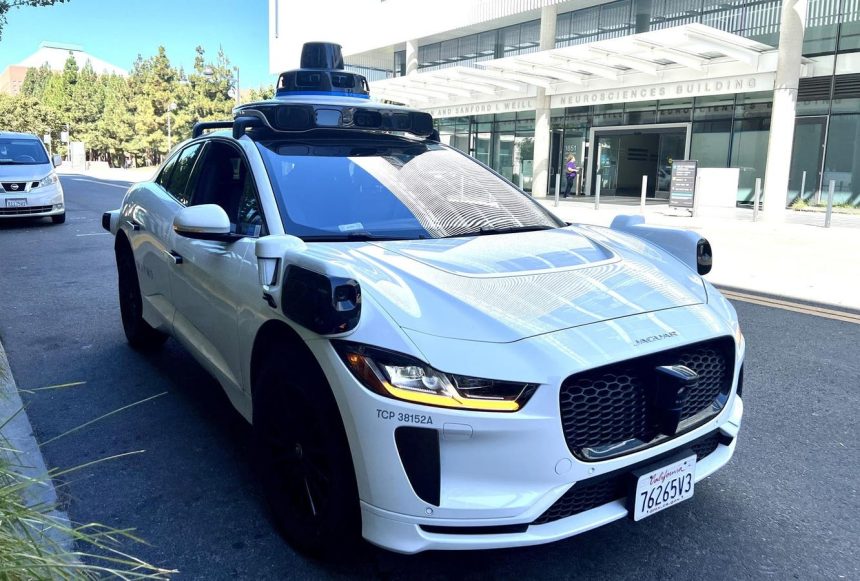Waymo, the autonomous driving technology company under Alphabet Inc., is charting a course for international expansion, with its sights set on Japan as its first overseas testing ground. This strategic move underscores Waymo’s ambition to become a global leader in the burgeoning robotaxi industry, leveraging its technological prowess and operational experience to navigate the complexities of diverse urban environments. The company plans to deploy a fleet of electric Jaguar I-Pace SUVs in Tokyo early next year, focusing initially on mapping the intricate road networks and dense urban landscapes of the city’s central districts. This meticulous mapping process forms the foundation for Waymo’s autonomous driving system, enabling its vehicles to perceive and interpret their surroundings with precision and navigate safely and efficiently. The collaboration with Nihon Kotsu, Japan’s largest taxi operator, and the taxi app operator GO signifies Waymo’s commitment to integrating its technology within the existing transportation infrastructure and collaborating with local partners to ensure a seamless transition to autonomous ride-hailing services.
While the timeline for commercial deployment in Japan remains undisclosed, Waymo’s international foray signals its confidence in the scalability and adaptability of its technology. This expansion coincides with Waymo’s ongoing growth within the United States, where the company is actively broadening its service footprint. With established operations in Phoenix, San Francisco, and Los Angeles, Waymo is poised to introduce its robotaxi service in Miami, Austin, and Atlanta next year, further solidifying its presence across major metropolitan areas. The company’s robust ridership, exceeding 150,000 weekly passengers across its current service areas, indicates a growing demand for autonomous ride-hailing options and provides a strong foundation for continued expansion. Although specific financial figures remain private, Waymo’s estimated annualized revenue, based on current ridership, suggests a substantial and rapidly growing business.
The competitive landscape of the robotaxi industry is undergoing significant shifts, with Waymo emerging as a dominant player. The recent decision by General Motors to discontinue its Cruise robotaxi service, a direct competitor to Waymo, highlights the challenges and complexities of deploying autonomous vehicles at scale. This move underscores the technological and operational hurdles inherent in developing and operating a fully autonomous ride-hailing service, and further solidifies Waymo’s position as a frontrunner in the field. While other companies, such as Tesla, aspire to enter the robotaxi arena, Waymo’s fully driverless operations distinguish it from competitors who rely on driver-assist technologies. This distinction underscores Waymo’s commitment to developing and deploying truly autonomous vehicles capable of navigating complex urban environments without human intervention, albeit with remote monitoring and support capabilities.
Waymo’s technological edge stems from its extensive testing and development program, spanning over a decade, which has allowed the company to refine its autonomous driving system and accumulate vast amounts of real-world driving data. This data-driven approach enables Waymo to continuously improve its algorithms and enhance the safety and reliability of its vehicles. Furthermore, Waymo’s partnership with Hyundai to source electric vehicles starting next year will contribute to cost optimization, further strengthening its competitive position. The adoption of more affordable electric vehicles, coupled with the transition to lower-cost computing and sensor hardware, demonstrates Waymo’s commitment to achieving long-term sustainability and scalability in its operations. This strategic focus on cost efficiency positions the company for continued growth and expansion, both domestically and internationally.
The international expansion into Japan presents both opportunities and challenges for Waymo. Navigating the unique regulatory landscape, cultural nuances, and complex road networks of a new country will require careful planning and adaptation. Waymo’s partnership with local taxi operators and app providers will be crucial in overcoming these challenges and ensuring a successful integration into the Japanese transportation ecosystem. Furthermore, building public trust and addressing safety concerns will be paramount to gaining acceptance for autonomous ride-hailing services in a new market. Waymo’s track record of safety and its commitment to transparency will be key factors in building confidence among regulators, passengers, and the broader public.
In conclusion, Waymo’s expansion into Japan marks a pivotal moment in the evolution of autonomous driving technology. The company’s strategic partnerships, technological advancements, and operational experience position it well to overcome the challenges and capitalize on the opportunities presented by the global robotaxi market. As the industry continues to evolve, Waymo’s commitment to safety, innovation, and collaboration will be instrumental in shaping the future of transportation and realizing the transformative potential of autonomous vehicles. The company’s journey into new markets will undoubtedly provide valuable insights and further accelerate the development and adoption of this groundbreaking technology worldwide.



